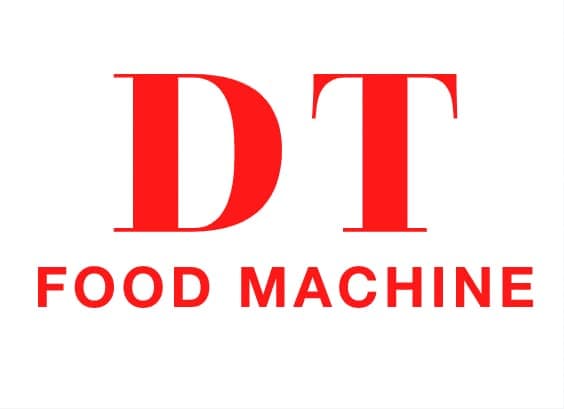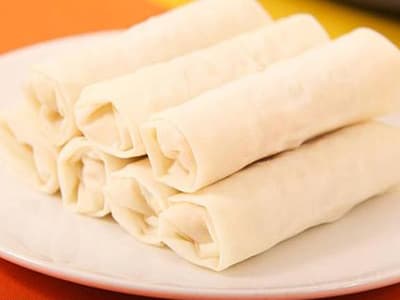giriiş: Spring Rolls'a olan küresel sevgi
Çin böreği dünya çapında en sevilen atıştırmalık ve mezelerden biridir. Güneydoğu Asya'daki çıtır çıtır kızarmış versiyonlardan taze olanlara kadar, pirinç kağıdına sarılı Vietnam ruloları, bu çok yönlü lezzetler uluslararası bir favori haline geldi. Profesyonel bir gıda makineleri şirketi olarak, biz DT Food Machine'in geçmişini anlıyoruz, varyasyonlar, Çin böreğinin büyük ölçekli üretimi sadece mutfak kültürünü öne çıkarmakla kalmıyor, aynı zamanda gıda işleme ekipmanlarının teknik potansiyelini de ortaya koyuyor.
Burada, kökenleri araştıran bir rehber veriyoruz, farklı türler, Çin böreği üretim süreci, ve Çin böreğinin verimli ve hijyenik bir şekilde seri üretimi için kullanılan modern makineler.
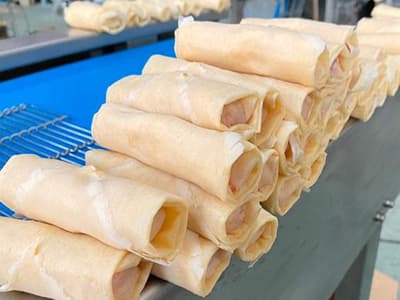
1. Spring Rolls'un Kökenleri ve Tarihçesi
1.1 Antik Çin Kökleri
Çin böreğinin tarihi antik Çin'e kadar uzanıyor, Başlangıçta Bahar Şenliği sırasında yediğimiz yer. Bu ilk versiyonlar, isminde “Chunjuan” (Çin böreği), sebzelerle sarılmış ince kreplerdi. Mesai, Asya'ya yayıldılar, Malzemeler ve hazırlama konusunda gelişen.
1.2 Asya ve Ötesine Yayılma
- Vietnam: Taze rulolar (Rulo), pirinç kağıdından yapılmış ve karidesle doldurulmuş, şehriye, ve otlar.
- Filipinler: Yaylı rulo, kıyılmış domuz eti veya tatlı muzla doldurulabilir.
- Tayland & Endonezya: Bölgesel baharatlarla gevşek bir şekilde uyarlanmıştır.
- Batı: Asya restoranlarında meze olarak popülerlik kazandı.
2. Dünyadaki Spring Roll Çeşitleri
2.1 Taze Çin Böreği
- Genellikle kızartılmaz
- Vietnam mutfağında yaygın
- Sebzelerle doldurulmuş, otlar, pirinç eriştesi, ve karides veya domuz eti
2.2 Kızarmış Çin Böreği
- Çin ve Filipin mutfağında popüler
- Un bazlı veya pirinç kağıdı ambalajlarına sarılmış
- Çıtır çıtır olana kadar kızartılır
2.3 Tatlı Çin Böreği
- Muzlu börekler
- Çikolata dolgulu bahar ruloları
- Mevsim meyvesi çeşitleri
2.4 Vejetaryen ve Vegan Seçenekleri
- Soya peyniri, mantarlar, lahana, ve havuç
- Bitki bazlı ambalajlar
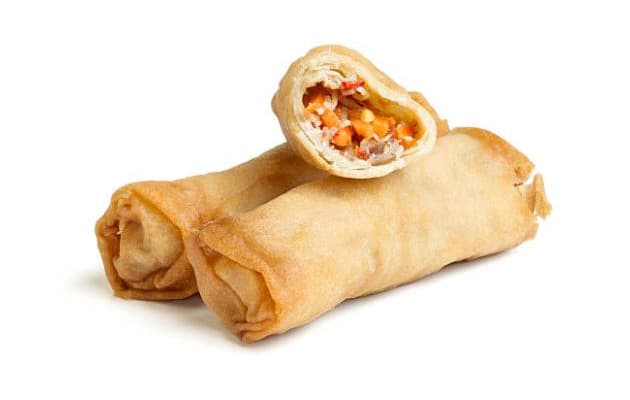
3. Çin Böreğine Yönelik Endüstriyel Talep
3.1 Artan Küresel Talep
Çin böreği büyük talep görüyor:
- Süpermarketler (dondurulmuş gıda bölümleri)
- Restoranlar
- Havayolu ikram hizmetleri
3.2 Manuel Üretimin Zorlukları
- Emek yoğun
- Tutarsız boyutlar ve dolgular
- Düşük verimlilik
4. Bahar Rulo Üretim Hattı: Tam Genel Bakış
4.1 Spring Roll Üretim Hattının Temel Bileşenleri
- Sarma Makinası
- Otomatik olarak ince yaylı rulo sarmalayıcılar üretir
- Ayarlanabilir kalınlık ve çap
- Dolum Makinası
- Tutarlı miktarda dolum sağlar
- Sebzelerle uyumludur, et, veya tatlı dolgular
- Katlama ve Sarma Makinası
- Doldurmayı ambalajlara otomatik olarak yerleştirir
- Yaylı ruloları sıkı silindirler halinde katlar ve yuvarlar
- Kızartma Hattı (isteğe bağlı)
- Belirli bir sıcaklıkta ve hızda kızartılmış rulolar
- Yağ filtreleme ve geri kazanım sistemi ile donatılmıştır
- Donma Tüneli (dondurulmuş Çin böreği için)
- Uzun süreli depolama için hızlı dondurma
- Ambalaj makinesi
- Ruloları plastik tepsiler veya poşetler içinde tartar ve paketler
4.2 İş Akış Şeması
Sarma Yapımı → Doldurma → Sarma → (Kızartma) → Soğutma → Dondurarak → Paketleme
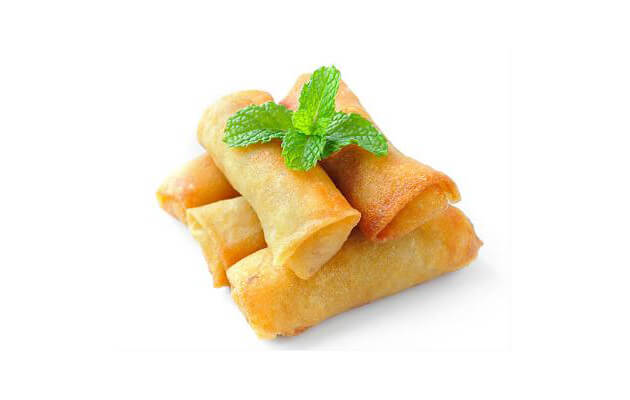
5. Spring Roll Makinelerinin Teknik Parametreleri (Genişletilmiş)
| Bileşen | Parametre | Tanım |
|---|---|---|
| Sarma Kalınlığı | 0.3mm – 1.5mm | Doku ihtiyaçlarına göre özelleştirilebilir |
| Sarıcı Çapı | 100mm – 300mm | Standart boyutlar: 120mm, 180mm, 220mm |
| Sarıcı Çıkış Hızı | 3000 – 6000 sayfa/saat | Çapa ve makine boyutuna bağlıdır |
| Dolum Kapasitesi | 10G – 100rulo başına g | Et/sebze içerikleri için ayarlanabilir hacim |
| Doldurma Haznesi Hacmi | 50L – 100L | Toplu veya sürekli beslemeyi destekler |
| Yuvarlanma Hızı | Kadar 60 dakikada yuvarlanma | Orta ve büyük ölçekli fabrikalar için uygundur |
| Kızartma Sıcaklık Aralığı | 150°C – 200°C | Otomatik sıcaklık kontrolü ile |
| Kızartma Süresi | 20S – 90S | Dijital kontrol paneli ile ayarlanabilir |
| Donma Tüneli Sıcaklığı | -30°C ila -40°C | Tadı korumak için hızlı dondurma & doku |
| Gerilim | 220V/380V, özelleştirilebilir | Yerel güç kaynağıyla eşleştirin |
| Makine malzemesi | SUS304 Gıda Sınıfı Paslanmaz Çelik | Korozyona dayanıklı ve dayanıklı |
| Kontrol sistemi | PLC Dokunmatik Ekran + Sensörler | Kullanımı ve izlenmesi kolay |
| Otomasyon seviyesi | Yarı otomatikten tam otomatike kadar seçenekler | Kişiselleştirilebilir üretim çözümleri |
6. Otomatik Spring Roll Makinelerini Kullanmanın Faydaları
- Tutarlılık: Tek tip boyut ve ağırlık
- Hijyen: Minimum insan teması
- Yeterlik: Seri üretim kapasitesi
- Özelleştirme: Tarife ve şekle göre ayarlayın
- Maliyet tasarrufu: İşçilik ve hammadde israfını azaltın
7. Bakım ve Operasyon İpuçları
- Nozulları ve konveyörleri günlük olarak temizleyin
- Sensörleri haftalık olarak kalibre edin
- Aşınmış kayışları veya kesici bıçakları ayda bir değiştirin
- Yuvarlama ve besleme sistemlerini yağlayın
- PLC programını düzenli olarak yedekleyin
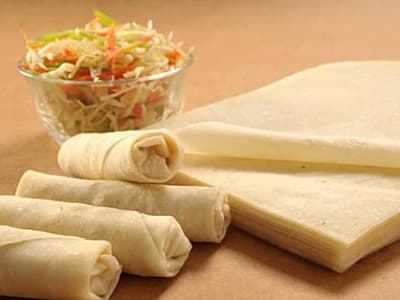
8. Vaka çalışması: Güneydoğu Asya'da Başarılı Spring Roll Üretimi
Vietnam'daki bir dondurulmuş gıda şirketi tam otomatik bir Çin böreği hattı kurdu. Üretim arttı 300%, tutarlı ürün kalitesi ve azaltılmış işçilik maliyetleri ile 70%.
Kurulumdan Önce:
- Çıktı: 8,000 adet/gün
- İş gücü: 12 işçi
Kurulumdan Sonra:
- Çıktı: 24,000 adet/gün
- İş gücü: 4 işçi
9. Pazar Trendleri ve Tüketici Tercihleri
- Vegan ve glütensiz Çin böreğinde artış
- Tüketime hazır atıştırmalıklara talep
- Özel markalı Spring Roll markaları genişliyor
- Yenilikçi tatlar: kimçi, köri, trüf yağı
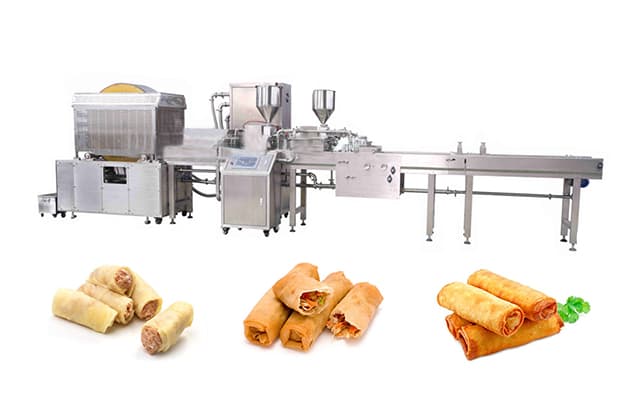
10. Doğru Spring Roll Makinesi Nasıl Seçilir
Hususlar:
- Üretim kapasitesi
- Doldurma türü (ıslak/kuru)
- Alan kullanılabilirliği
- Sarma malzemesi uyumluluğu
- Yerel voltaj ve güvenlik standartları
- Bütçe ve yatırım getirisi döngüsü
11. Spring Roll Makineleri Hakkında SSS
- Makineler yapışkan dolguları işleyebilir mi?? Evet, yapışmaz Teflon silindirler ile.
- Garanti ne kadardır? 12-24 modele bağlı olarak ay.
- Tarifler kişiselleştirilebilir mi?? Evet, özel programlama sunuyoruz.
- Ortalama yatırım getirisi süresi nedir?? Arasında 6 ile 12 aylar.
12. Önerilen Modellerimiz
| Model | Üretim kapasitesi | Dahil Edilen Fonksiyonlar | Kullanıcıları Hedefleyin |
| DT-500 | 5,000 rulo/saat | Paketleyici + Çubuk + Rulo | Orta fabrikalar |
| DT-1000 | 10,000 rulo/saat | Tam hat dahil. Fritöz + Dondurucu | Büyük ölçekli üreticiler |
| DT-Lite | 1,500 rulo/saat | Paketleyici + Manuel besleme silindiri | Başlangıç & Küçük atölyeler |
13. Bugün Teklif Alın veya Numune Alın
Çin böreği üretim hattınızı başlatmak veya geliştirmek mi istiyorsunuz??
✔️Ücretsiz Fiyat Teklifi 24 Saat
✔️ Çevrimiçi Video Gösterimi Mevcuttur
✔️ Tarifinize Özel Makine Konfigürasyonları
✔️ Birebir Fabrika Danışmanlığı
Çin Böreği ve Otomatik Gıda İşlemenin Geleceği
Çin böreğine olan küresel sevgi, gıda üreticileri için büyük bir fırsat sunuyor. Modern makineleri benimseyerek, İşletmeler artan talebi kalite ve karlılığı garantileyerek karşılayabilir. Otomasyonu benimsemek sadece bir trend değil; Çin böreği üretiminin geleceğidir.
İster dondurulmuş gıda üreticisi olun, bir restoran zinciri, veya bir başlangıç, Otomatik Çin Böreği üretim hattına yatırım yapmak markanızı sürdürülebilir büyüme için konumlandıracaktır.
